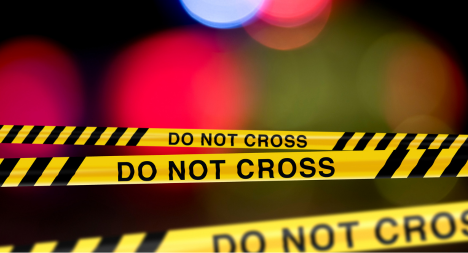Trucking Accident FAQs

If you or a loved one has been injured in a trucking accident, you will have many questions. Read our "Frequently Asked Questions about Truck Accidents" for information on what you should do to protect yourself.
1. What if I've been hurt in a trucking accident?
If you have been hurt in a trucking accident, you should first take care of any injuries to yourself and other occupants of your vehicle. Call 911 which will alert the police and, if necessary, will call for an ambulance. If your injuries are less severe, you should still seek medical attention following the accident, primarily for your own health, and also to document your injuries.
Secondly, you should document the evidence at the scene. Copy the truck driver’s identification, employer, and insurance details, take photos or video of the accident scene, and get contact details for witnesses.
Finally, do NOT admit fault.
2. Do I really need a lawyer for a trucking accident?
Trucking accidents are complex and can involve large companies with the resources to fight claims. A good lawyer can even the playing field and help to get a victim the compensation they deserve. A trucking accident claim is complicated by the many parties involved, such as the driver, the trucking company, a commercial insurance company, and cargo handlers. Trucking accidents also typically involve more severe injuries and greater vehicle damage. Trucking companies and insurance companies have the resources and the motivation to fight these expensive claims leaving you as outmatched as you were when your vehicle was struck by the truck.
3. What should I do if someone from the trucking company calls me before I’ve picked a lawyer?
You should refuse to discuss the accident with any representative of the trucking company, the driver, the insurance company, or any other associated person, and contact your lawyer. You should never admit fault or liability at, or after, the time of the accident without legal advice. If you are ever unsure about what to say, say nothing, and contact your lawyer.
4. What are common trucking accident injuries?
Injuries in a truck accident can be catastrophic because a truck is simply much bigger and heavier than a passenger car, and is often loaded with heavy or dangerous cargo. Also, truck accidents tend to happen at higher speeds because trucks more often use open roads with higher speed limits.
Common trucking accident injuries may include back and neck injuries, spinal cord injuries and paralysis, head and brain injuries, whiplash, broken bones, burns, lacerations, internal injuries and bleeding, and even death. Psychological damage is also common.
5. Who can be sued in a trucking accident case?
Trucking accidents involve a web of different people, which can make it difficult to know who to sue. In most cases, the victim will sue the trucking company, which will be insured under a commercial insurance policy. In certain cases, the victim may sue the truck driver, the loading or shipping company that loaded the cargo, the truck manufacturer, or the truck maintenance crew.
6. How much does it cost for an attorney in a trucking accident case?
The amount of legal fees will depend on the facts of your case and on the law firm that you choose, but if your claim is successful, your legal fees will be covered by your compensation. Most law firms offer a contingency fee arrangement (which calculates your fees as a percentage of your compensation.)
Morris James attorneys provide a free initial consultation to openly discuss your case, your options, and our fees so that you can choose the right lawyer for you.
7. What kind of evidence will I need in a trucking accident case?
There are specific types of evidence in a trucking accident case that may prove critical to the successful outcome of the case. An experienced trucking accident lawyer will help you obtain some or all of the following:
- Police accident report
- Certified truck inspection report
- Driver logbooks
- Truck maintenance logs
- Truck black box or other electronic monitoring data
- Witness statements
- Accident scene photos or videos
- Traffic camera videos
- Tire or gouge marks in the road
Your lawyer will also obtain specific information about the driver, the maintenance of the truck, the maintenance crew, the compliance record of the trucking company, the shipping company, and any other evidence relevant to your individual case.
8. How is fault determined in a trucking accident case?
Determining fault in a trucking accident case can be complicated. Both federal and state laws apply to trucking accidents, some of which specifically impact liability. Often more than one person can be liable in a trucking accident. A truck will probably be driven, owned, insured, loaded, and maintained by different people or companies, all of whom could have contributed to the accident, and all of whom have agreements with each other which affect their legal rights and responsibilities. Your attorney will analyze the actions and relationships of the relevant people in your case to determine what caused the accident and who should be held responsible under the law.
9. Is there a deadline for filing a trucking accident lawsuit?
Yes. In Delaware, the statute of limitations for property damage and personal injury claims is 2 years, which starts to run on the date of the accident. The limitations period for a wrongful death claim is also 2 years. In certain cases, the victim may have a contractual claim against one or more insurance companies for breach of the insurance policy, which has a longer limitations period of 3 years from the date of the breach. These time limits are short and you should not delay in taking action after your trucking accident.
10. The trucking company’s insurance adjuster wants a statement from me. Should I give them one?
No. If you have been involved in a trucking accident, you should not communicate with the trucking company’s insurance provider without consulting with your attorney first. The insurance company will try to reduce its losses, and can be very persuasive and aggressive. It will be investigating the accident from the earliest stages therefore any communication will be part of their investigation and their efforts to minimize the blame that is apportioned to the trucking company. You should consult with your attorney, and allow them to communicate with the insurance provider on your behalf.
11. Do special laws apply to truck drivers?
Yes. State and federal regulations apply to truck drivers and trucking companies. The Federal Motor Carrier Safety Administration (FMCSA), within the U.S. Department of Transportation, has enacted regulations for commercial motor vehicles and commercial truck drivers regarding:
Licensing
Electronic logging devices
Service hours
Drug and alcohol testing
Special training and physical requirements
Securing cargo
Delaware has adopted the federal regulations into state law, with some modifications such as lowering the minimum driver age for commercial driving within the state, and allowing a medical waiver for drivers in certain situations.
If you are involved in an accident with a truck driver, your attorney will consider all the applicable laws to strengthen your case for compensation.
12. Can I sue the trucking company for my injuries?
If you are involved in an accident with a commercial truck, you will typically be able to sue the trucking company for your injuries. However, there are other parties who may also be liable. Depending on the circumstances of the accident, the truck driver, the cargo loaders, the truck manufacturer, and other persons or entities may also have some legal responsibility for the accident. Most often in a trucking accident, you will claim compensation from the trucking company, which has a commercial insurance policy for such claims.
Your attorney will advise you who you can and should sue depending on the facts of your unique case.
13. I was injured in a big rig accident where the other driver was at fault. Can I receive money for time I missed at work?
Yes. If you are injured in a trucking accident, the at-fault driver (or their employer or other person depending on the facts of the case) can be legally liable to compensate you for your losses as a result of the accident. Compensation may include lost wages, medical bills (including future medical expenses), and pain and suffering.
14. My loved one’s car collided with a truck that was carrying hazardous liquid, and they suffered respiratory problems. Can we sue the shipper of the hazardous materials as well as the trucking company?
If you or your loved one suffered injuries as a result of a trucking accident, there are a number of different parties that you may be able to sue depending on who was at fault for your particular accident and injuries. Every accident is different. An experienced attorney can help you to understand the laws that are applicable to your case and the parties that can be held legally responsible for your injuries. A shipping company may be liable if their negligence is the cause of your injuries, however, other parties may also be jointly or individually responsible such as the trucking company, the driver, the cargo loaders, or other parties. You should get legal advice to ensure you are protected and get the maximum recovery for your injuries.
15. Can I sue the trucking company if I was involved in an accident where the eighteen-wheeler jackknifed?
If you are involved in any trucking accident, the facts of the accident, the fault of the people involved, and the applicable federal and state laws will determine who is legally liable for your injuries and losses. Sometimes a jackknifing accident can occur as a result of slippery driving conditions or because a driver had to stop suddenly or swerve to avoid a hazard in the road. In such circumstances, the truck driver may not be at fault but another person may still be liable for your injuries. Most commonly, your claim in a trucking accident will be against the trucking company, however the driver, the driver’s employer, a road maintenance contractor, or another party could be legally responsible. Your attorney will look closely at the circumstances of your accident to advise you who you can and should pursue for compensation following a trucking accident.
16. Can I still sue the trucking company if I was partly at fault for the accident?
In Delaware, the rule of modified comparative negligence applies when apportioning blame and calculating compensation in a personal injury claim. It means that when a victim is partly at fault for the accident, the victim’s compensation is reduced by proportion of their blame, and if the victim is more than 50% responsible for the accident, they cannot recover any compensation from the at-fault party. The judge or jury will decide the amount of blame apportioned to each party.
For example, if you are a victim who is 10% at fault for the accident and your losses are $100,000, your compensation will be reduced by 10% so you will only receive $90,000. If you are more than 50% to blame for the accident, you will receive nothing.
It is important to consult an experienced Delaware attorney to advise you of the implications of this law so that you can obtain the maximum compensation for your loss.
17. Where can I sue if my trucking accident happened out of state or the trucking company is out of state?
The legal rules of jurisdiction can be complicated, and can affect the handling of your case and the amount of your compensation. Different states have different rules on significant issues such as fault, compensation, and statutes of limitations, which could help or hinder your case. You should consult with an attorney to determine where you can, and should, file a claim if the trucking company or other at-fault party is based outside Delaware, or if the accident happened outside Delaware. Multi-state cases can be complicated and expensive but an experienced attorney, such as the attorneys at Morris James, have handled them before and can help navigate the process and maximize your compensation.
18. What happens after an accident with a box truck or delivery van?
An accident with a box truck or a delivery van can be a traumatic event. Someone who is impacted by an accident such as this has the ability to seek legal recourse. When an accident occurs, an individual should document and accumulate as much evidence as possible.









